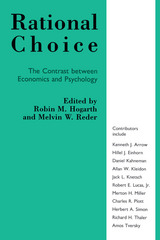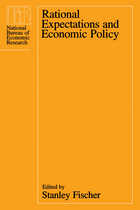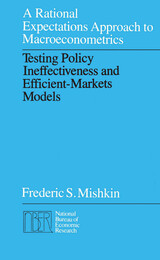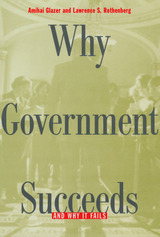
The volume is based on a recent conference held to honor the work and memory of the late Hillel J. Einhorn, a pioneering scholar in behavioral decision research. Composed of contributions by leading researchers, Insights in Decision Making provides a state-of-the-art image of work in this field.
The range of topics covered includes conceptual and technical issues the bridge the gap between theory and the practical concern of improving decision making, difficulties in statistical thinking, experimental studies of processes of judgment and choice, and the emergence of new paradigms for studying decision behavior.
Providing many avenues for future research, Insights in Decision Making will be essential reading for students of the psychology of decision making and will prove valuable to readers in psychology, economics, statistics, and management.


Rational Expectations and Econometric Practice was first published in 1981. Minnesota Archive Editions uses digital technology to make long-unavailable books once again accessible, and are published unaltered from the original University of Minnesota Press editions.
Assumptions about how people form expectations for the future shape the properties of any dynamic economic model. To make economic decisions in an uncertain environment people must forecast such variables as future rates of inflation, tax rates, government subsidy schemes and regulations. The doctrine of rational expectations uses standard economic methods to explain how those expectations are formed.
This work collects the papers that have made significant contributions to formulating the idea of rational expectations. Most of the papers deal with the connections between observed economic behavior and the evaluation of alternative economic policies.
Robert E. Lucas, Jr., is professor of economics at the University of Chicago. Thomas J. Sargent is professor of economics at the University of Minnesota and adviser to the Federal Reserve Bank of Minnesota.

"This is a most timely and valuable contribution. . . . The contributors and commentators are highly distinguished and the editor has usefully collated comments and the ensuing discussion. Unusually for a conference proceedings the book is well indexed and it is also replete with numerous and up-to-date references. . . . This is the first serious book to examine the rational expectations thesis in any depth, and it will prove invaluable to anyone involved with macroeconomic policy generally and with monetary economics in particular."—G. K. Shaw, The Economic Journal


This book looks beyond politics to show how the ability of the U.S. government to implement policies is strongly affected by various economic constraints. These include the credibility of the policies, the ability of government to commit to them, the extent to which firms and consumers rationally anticipate their effects, whether the success of a policy further encourages firms and individuals to behave in intended ways, and whether the behavior of such actors can be sustained without continued government intervention.
The authors apply these concepts to four areas of policy: macroeconomic policies to promote employment and economic growth, redistributive policies to benefit the poor and the elderly, production policies to provide goods and services, and regulatory policies to guide the behavior of firms and individuals. In doing so they provide plausible explanations of many puzzling phenomena—for example, why government has been successful in reducing cigarette smoking, but has failed to get people to install and maintain emission-control devices in their cars.
This book recasts debates about public policy, avoiding conventional “pro-government” or “anti-government” positions; rather, it helps to predict when public policy will succeed.
READERS
Browse our collection.
PUBLISHERS
See BiblioVault's publisher services.
STUDENT SERVICES
Files for college accessibility offices.
UChicago Accessibility Resources
home | accessibility | search | about | contact us
BiblioVault ® 2001 - 2024
The University of Chicago Press









